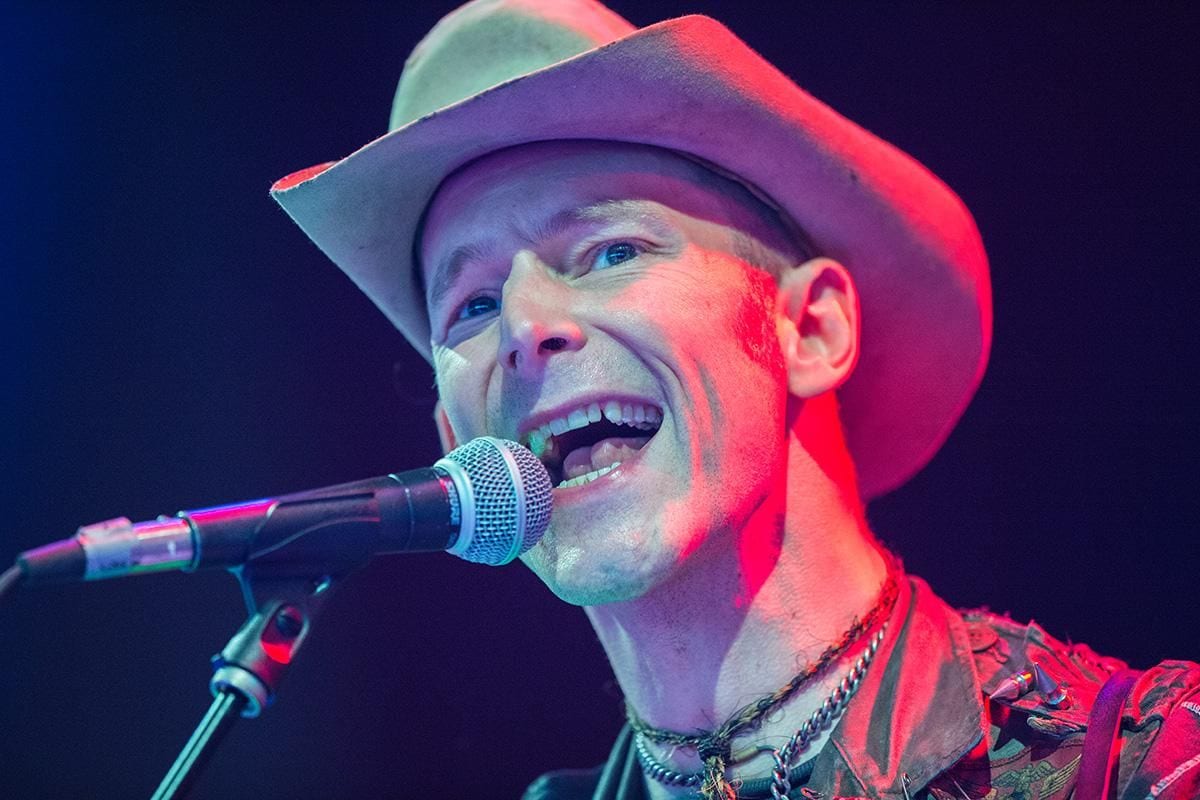These punk hybridizers did not go unnoticed, though, as Lone Justice, Jason and the Scorchers, and the Beat Farmers followed suit, establishing cowpunk as a vibrant and innovative alternative. Also listening in was a self-described “hillbilly” from Kentucky whose love of Emmylou Harris‘ roots sound had led him to her home base in L.A. Dwight Yoakam had a rock swagger that lent itself more naturally to the cowpunk than country circuit, and his irreverent attitude towards corporate country initially made him a pariah in Nashville. So, he settled into L.A.’s post-punk circuit, surrounding himself with ex-punk musicians and playing up-tempo honky-tonk at punk clubs, where he opened for the likes of the Blasters and X.
The L.A. cowpunk scene reached its peak of popularity in the mid-’80s, though few of its bands made it beyond that scene in the midst of the MTV decade. However, its influence was vast, from inspiring other local roots-rock movements like the paisley underground (the Long Ryders, Green on Red, Rain Parade), to establishing country music as a viable ingredient within the post-punk bouillabaisse.
The primary and sometimes sole outlet for (post-)punk’s experimentations with roots-rock hybrids was college radio. There, one would hear the Replacements oscillate between punkabilly screamers like “I’m in Trouble” (1981) and country drinking songs like “Here Comes a Regular” (1985); or the Violent Femmes bringing acoustic instruments and snarling vocals to off-kilter songs of loss and woe like “Gone Daddy Gone” (1983) and “Hallowed Ground” (1984). There was country in these songs, and punk, too, yet the hybrid came out in new and different manifestations.
Dominating alternative rock’s take on country was a pervasive sense of irony, a take on traditional country tropes of drinking and heartache that verged on parody. As such, the synthesizing of bands like the Dead Milkmen was between country themes and punk sarcasm as much as between music styles. The same can be said of other college rock wits like Mojo Nixon and the Butthole Surfers, both of whom used country and punk conventions as vehicles for their eccentric humor.
Contemporaneously, more bizarre hillbilly humor was dredged up from the swamps by Southern Culture on the Skids who, as their name suggests, playfully addressed long-established stereotypes of country living, including songs about sex and chicken(s) that recall the infatuations of Hasil Adkins. From this tangent one can trace a y’alternative legacy that runs far and wide and up to the present day, through “hellbilly” mavericks like Hank Williams III, punkgrass speedsters like Split Lip Rayfield, and idiosyncratic alt. country traditionalists like Whiskeytown. The tradition even boasts its own business representatives in Bloodshot Records, the independent label boasting innumerable country acts carrying the requisite spit and vinegar credentials.
If (cow)punk’s identity is one crafted from positioning itself as the underdog and antagonist to exploitative, uncaring corporations, then Bloodshot is the perfect label for those so inclined. In fact, their romantic self-portrait as a mythic David to Nashville’s Goliath is captured in the glorious hyperbole of their mission statement. “There comes a time when every man feels the urge to spit on his hands, hoist the black flag and start slitting throats,” they declare, quoting H.L. Mencken, before adding, “Help us keep our steel-toed work boots firmly on the throats of the enemy” (Bloodshot).
* * *
Works Cited
Almost Blue. Wikipedia.
Doe, John, with Tom Desavia and Friends. Under the Big Black Sun: A Personal History of L.A. Punk. Da Capo Press. 2016.
McCleese, Don. Dwight Yoakam: A Thousand Miles From Nowhere. University of Texas Press. 2012.
- Lydia Loveless: Daughter | Music Review - PopMatters
- Vandoliers: Forever (album review) - PopMatters
- The Old 97's: The Grand Theatre Volume One - PopMatters
- Hayshaker: Black Holiday in Mexico City - PopMatters
- Spider Bags: Someday Everything Will Be Fine (album review ...
- From Cowpunk to Sarah Shook - PopMatters


![Call for Papers: All Things Reconsidered [MUSIC] May-August 2024](https://www.popmatters.com/wp-content/uploads/2024/04/all-things-reconsidered-call-music-may-2024-720x380.jpg)



